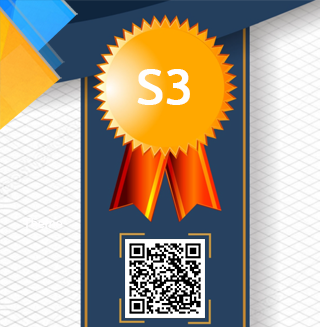The Effectiveness of Online COVID-19 Education at Peer Support Group Top Support Pelita Ilmu Foundation
DOI:
https://doi.org/10.25311/keskom.Vol7.Iss2.875Keywords:
COVID-19, Online Education, PLWHA, Peer Support Groups, Peer EducatorAbstract
Abstract
Corona virus or severe acute respiratory syndrome coronavirus 2 (SARS-CoV-2) is a virus that can cause mild disorders of the respiratory system, severe lung infections, and death. The large number of confirmed cases is positive, giving special attention to groups that are vulnerable to infection such as groups with immunodeficiency, one of which is the group of people with HIV.
This study aims to assess the effectiveness of presenting online COVID-19 education to increase knowledge, attitudes and practices to prevent COVID-19 in the Peer Support Group (KDS) Top Support Pelita Ilmu Foundation (YPI) located in Jakarta. This study used a qualitative method. Target of interventions are mentors and peer educators. Data were collected through semi-structured interviews, self-administered questionnaire and report. The data analysis technique was carried out with three main activities, namely: data reduction, data presentation, and drawing conclusions. The validity of the data was carried out by means of credibility through the triangulation of sources and methods. The results showed that providing COVID-19 education online by involving mentoring and empowering peer educators was effective in increasing knowledge about the COVID-19 prevention protocol. Providing online educational assistance through a peer educator approach is useful as a chain message to oneself, family, community and peers. People who are educated are becoming more diligent in implementing 3M and healthy lifestyles, but to know this behavior change consistently, further research is needed.
Downloads
References
DAFTAR PUSTAKA
Kementerian Kesehatan Republik Indonesia. Accessed December 16, 2020.https://www.kemkes.go.id/folder/view/full-content/structure-faq.html
Infeksi Emerging Kementerian Kesehatan RI. Accessed December 16, 2020. https://COVID19.kemkes.go.id/situasi-infeksi-emerging/situasi-terkini-perkembangan-coronavirus-disease COVID-19-01-desember-2020-10
COVID-19. Accessed December 16, 2020. https://corona.jakarta.go.id/id/data-pemantauan
Prabhu S, Poongulali S, Kumarasamy N. ‘Impact of COVID-19 on people living with HIV: A review’. J Virus Erad. 2020;6(4):100019.doi:10.1016/j.jve.2020.100019
Vizcarra P, Pérez-ElÃas MJ, Quereda C, et al. ‘Description of COVID-19 in HIV-infected individuals: a single-centre, prospective cohort’. Lancet HIV. 2020;7(8):e554-e564. doi:10.1016/S2352-3018(20)30164-8
Tarmizi SN. Program Penanggulangan AIDS Di Indonesia Selama Masa Pandemi COVID 19.; 2020.
Kurniawati H, Shaluhiyah Z. ‘Pengetahuan Pendidik Sebaya Mempengaruhi Pemberian Informasi KRR di Kabupaten Kulon Progo’. Indones J Heal Promot. 2014;9(2):162-171. doi:10.14710/jpki.9.2.162-171
Demartoto A. ‘Intervensi Perubahan Perilaku Kesehatan Orang Dengan HIV/AIDS (Studi Kasus Pada Kelompok Dukungan Sebaya Solo Plus Di Surakarta)’. J Anal Sosiol. 2019;8(1):89-100. https://jurnal.uns.ac.id/jas/article/view/28574
UNICEF. Published 2020. Volunteers help communities to protect themselves against COVID-19 in Indonesia. Accessed December 22, 2020. https://www.unicef.org/indonesia/coronavirus/stories/muhammidiyah-volunteers-help-communities-protect-themselves-against-COVID-19
Sumartini S, Maretha V. ‘Efektifitas Peer Education Method dalam Pencegahan HIV/AIDS terhadap Pengetahuan Dan Sikap Remaja’. J Pendidik Keperawatan Indones. 2020;6(1):77-84. doi:10.17509/jpki.v6i1.21130
Ghasemi V, Simbar M, Fakari FR, Naz MSG, Kiani Z. ‘The effect of peer education on health promotion of iranian adolescents: A systematic review’. Int J Pediatr. 2019;7(3):9139-9157. doi:10.22038/ijp.2018.36143.3153
Simanjuntak EYB, Silitonga E, Aryani N. ‘Adaptasi Pendampingan Kesehatan Di Masa Pandemi COVID 19 Studi Strategi Virtual Outreach PKBI Kota Semarang’. J Abdidas. 2020;1(3):119-124.
Sabarudin, Mahmudah R, Ruslin, et al. ‘Efektivitas Pemberian Edukasi secara Online melalui Media Video dan Leaflet terhadap Tingkat Pengetahuan Pencegahan COVID-19 di Kota Baubau’. J Farm Galen (Galenika J Pharmacy).2020;6(2):309-318.n doi:10.22487/j24428744.2020.v6.i2.15253
Will Nutland LC. Health Promotion Practice Second Edition. Open University Press; 2015. http://library1.nida.ac.th/termpaper6/sd/2554/19755.pdf
Abdullah SM. ‘Social Cognitive Theory : A Bandura Thought Review’ published in 1982-2012. Psikodimensia. 2019;18(1):85. doi:10.24167/psidim.v18i1.1708
Sugiyono. (2012). Metode penelitian kuantitatif, kualitatif, dan R&D. Bandung: Alfabeta.
Muchammad Bayu Tejo Sampurno, Tri Cahyo Kusumandyoko, Muh Ariffudin Islam. ‘Budaya Media Sosial, Edukasi Masyarakat, dan Pandemi COVID-19’. Jurnal Sosial & Budaya Syar-i FSH UIN Syarif Hidayatullah Jakarta Vol. 7 No. 6 (2020), pp. 529-542, DOI: 10.15408/sjsbs.v7i5.15210
Nufus, B. H. and Susanti, E. W. (2018) ‘Peran Pendamping Dalam Intervensi Pada Orang Dengan HIV / AIDS (ODHA)’, Jurnal Ilmu Kesejahteraan sosial, 19(2), pp. 132–144.
Fikriyyah, S., Dewi K, M. N. and Astrika, F. (2017) ‘Pengaruh Metode Peer education Terhadap Pengetahuan Kesehatan Reproduksi Pada Siswi SMP di Pondok Ta’mirul Islam Surakarta’, Jurnal EDUNursing, 1(2), pp. 64–71.
Amrizarois Ismail, Mohammad Rofiq, M. Afifun Na’im, Isa Aulia Rohman. Adaptasi Pendampingan Kesehatan Di Masa Pandemi Covid 19 - Studi Strategi Virtual Outreach PKBI Kota Semarang.DOI:https://doi.org/10.31004/abdidas.v1i3.35
Downloads
Submitted
Accepted
Published
Versions
- 2021-09-13 (2)
- 2021-08-31 (1)
How to Cite
Issue
Section
License
Copyright (c) 2021 Jurnal Kesehatan Komunitas

This work is licensed under a Creative Commons Attribution-NonCommercial-ShareAlike 4.0 International License.





























